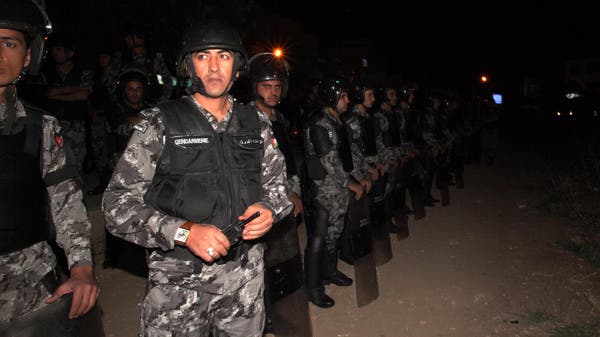Does Iran want a destabilized Jordan?
I don’t think I am exaggerating when I say that most Jordanians were not that shocked to read about the foiled terror plot by the
reportedly Iranian-backed Bayt al-Maqdis. There was, and still is, distress in Jordan after the case was unveiled in Al Rai newspaper not because of Iran’s involvement but because it was a planned terror plot. Like almost all Arabs, Jordanians are suspicious of Tehran’s supposed colonial and unfriendly intentions against their security-concerned country.
Just as it denied sending military advisors to Yemen, Iran will deny any affiliation with the suspect in the planned terror plot in Jordan
Raed Omari
Jordan’s State Security Court issued a ruling a day after the terror plot was unveiled, banning the publication of news reports related to the case, first of all because this might affect the investigation and, more importantly I think, because the incident is politically such a big issue. In fact, Jordan’s largest daily, Al Rai, quoted a well-informed source as saying that
45 kilograms of explosives were found in the suspect’s possession. If true, “this is the most serious case in a decade in terms of the quantity of explosives discovered and their quality,” said the source, adding that the suspect was found to be in possession of large amounts of explosives and was arrested in northern Jordan. As a purely criminal case, the suspect’s name “
Khaled al-Rubaie” is so far the only information that has been made available to local press.
Averted terror plot
Aside from the rather dry judicial proceedings, much can be said about the averted terror plot. First and foremost, Iran’s interference and plotting – always shaped in military terms – is, in the minds of many, strongly felt in Iraq, Syria, Lebanon, Yemen and Gaza. Many observe that Jordan is a target for Tehran. Geopolitically speaking, Jordan constitutes a barricade that has for a long time reportedly been thwarting Iranian attempts to secure a foothold within the Levant region on its way to the Arab Peninsula. Iran is present in Iraq, Syria and Lebanon but never in Jordan which is the missing element in the envisioned “
Shiite Crescent.”
After all the “benign” Iranian attempts to drag Jordan into its domain of influence, which took the form of economic temptations to the kingdom, Tehran has seemingly become more aggressive toward Jordan. Once in promises of natural gas provision and pledges of enhanced economic cooperation, Iran sought to heave Jordan from its historic alliances with Saudi Arabia and Egypt. But Iran failed simply because Jordan is politically, strategically and for many other factors unwilling and unable to give up its alliance with Riyadh and Cairo. It is simply because Jordan is an Arab country.
Iranian influence
It seems that wherever Iranian influence is preset, strife and conflict usually follow or worsen. I am not only citing the foiled terror plot but also Tehran’s relentless efforts to secure an influential presence on
Syria’s southern front on the border with Jordan. I believe that implementing the Iranian agenda always required instability and chaos on the path toward full control. In a miracle-like achievement, Jordan has succeeded in safeguarding its security, thus preventing the penetration of Iran and also the Islamic State of Iraq and Syria (ISIS) – both of which have active in conflict hotbeds and in regions plagued by instability.
In other words, it could be that Iran had really plotted to strike Jordan using its affiliated groups in the region. Just as it denied sending military advisors to Yemen, Iran will deny any affiliation with the suspect in the planned terror plot in Jordan. But it is all in vain. The anti-Iranian rhetoric is increasing day by day within the Arab region that is, at least in my view, nearing a full consensus over Tehran being an unfriendly neighbor.
_______________
Raed Omari is a Jordanian journalist, political analyst, parliamentary affairs expert, and commentator on local and regional political affairs. His writing focuses on the Arab Spring, press freedoms, Islamist groups, emerging economies, climate change, natural disasters, agriculture, the environment and social media. He is a writer for The Jordan Times, and contributes to Al Arabiya English. He can be reached via
[email protected], or on Twitter @RaedAlOmari2
Last Update: Tuesday, 7 July 2015 KSA 08:57 - GMT 05:57
http://english.alarabiya.net/en/vie...07/Does-Iran-want-a-destabilized-Jordan-.html

